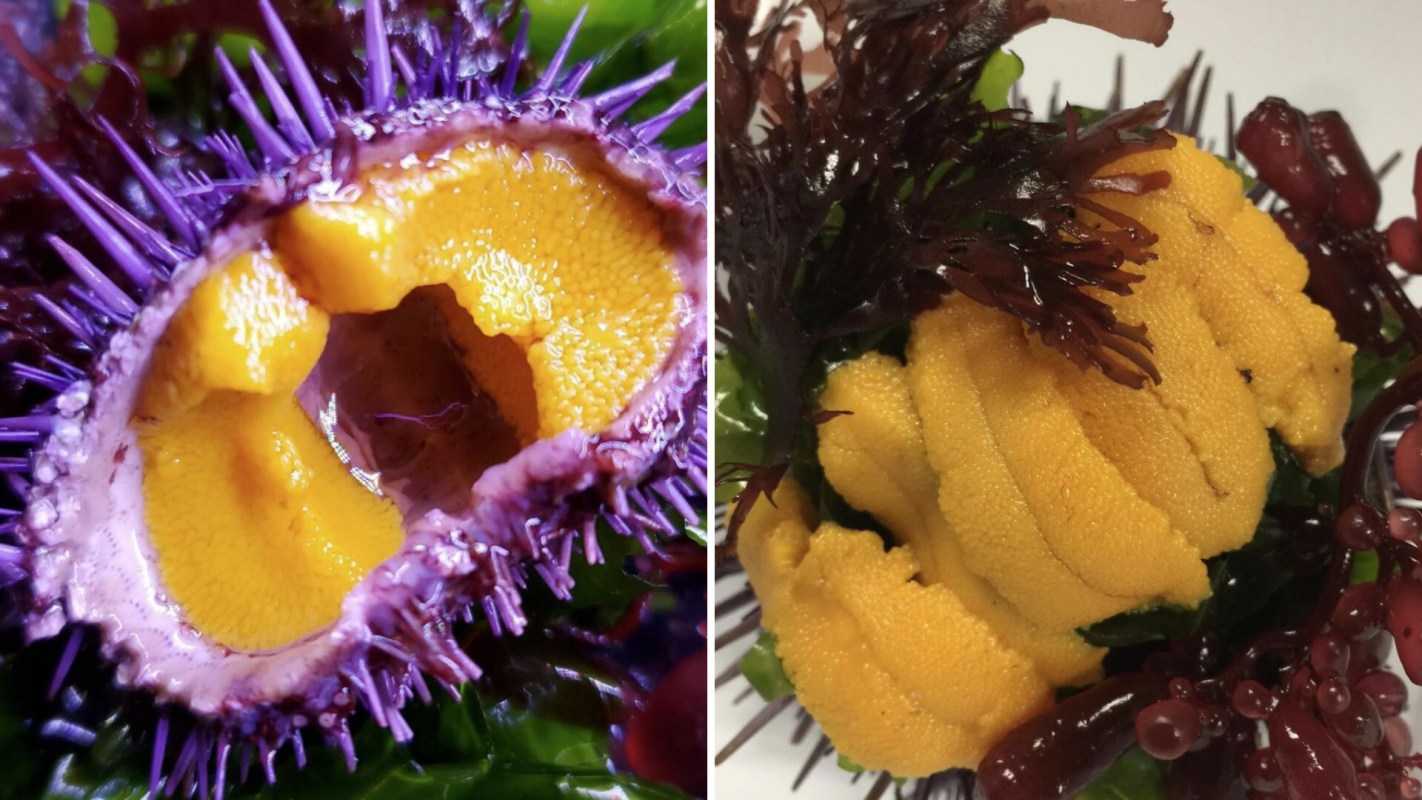A venture called the Purple Urchin Ranching Project is helping to rejuvenate California's kelp forests by ranching sea urchins for food.
A heat wave in 2014 and 2015 disrupted ecosystems in California, triggering unusual behavior in red and purple sea urchins, according to The Inertia. The urchins quickly ate the majority of the kelp forests on the state's coasts, and zombie-like husks of the urchins continually gobbled up kelp spores, preventing new stalks from taking hold.
Urchinomics, Inc., founded by Brian Tsuyoshi Takeda, discovered that removing these purple zombie urchins from these ecosystems could help new kelp forests rise up — and he also found that by feeding the captured urchins a specific kind of kelp, they fatten into a delicious delicacy that can be used in sushi restaurants and other eateries.
Urchinomics' business model is a win-win for everyone involved — divers make money by capturing and selling purple urchins to the company, which Urchinomics then sell to restaurants where they can be enjoyed by customers.
By removing these zombie urchins from overpopulated areas, new kelp forests have a better chance of regrowing, bringing balance to local ecosystems. The company also donates a portion of its profits to the urchin removal process, according to its website.
The website clearly outlines the company's approach to circular economics — divers remove urchins, Urchinomics ranches those urchins, then sells the ranched urchins and donates profits to more urchin removal, all providing space for the kelp ecosystems to recover.
Urchinomics partners with San Diego State University to maintain the Purple Urchin Ranching Project, one of its many wings of ranching and restoration.
"My goal with Urchinomics is to prove that, when incentives are properly aligned, and the spirit of human innovation is unleashed, ecological restoration, social development, and company profits can be achieved hand-in-hand," Tsuyoshi Takeda wrote on the company's website. "Through innovation and profit, we aim to reverse the decline of our delicate coastal marine ecosystem."
Join our free newsletter for cool news and cool tips that make it easy to help yourself while helping the planet.









